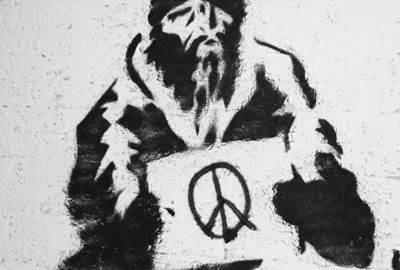All Nonfiction
- Bullying
- Books
- Academic
- Author Interviews
- Celebrity interviews
- College Articles
- College Essays
- Educator of the Year
- Heroes
- Interviews
- Memoir
- Personal Experience
- Sports
- Travel & Culture
All Opinions
- Bullying
- Current Events / Politics
- Discrimination
- Drugs / Alcohol / Smoking
- Entertainment / Celebrities
- Environment
- Love / Relationships
- Movies / Music / TV
- Pop Culture / Trends
- School / College
- Social Issues / Civics
- Spirituality / Religion
- Sports / Hobbies
All Hot Topics
- Bullying
- Community Service
- Environment
- Health
- Letters to the Editor
- Pride & Prejudice
- What Matters
- Back
Summer Guide
- Program Links
- Program Reviews
- Back
College Guide
- College Links
- College Reviews
- College Essays
- College Articles
- Back
Change is Important MAG
The attitudes of the social world and the people that inhabit it are constantly wavering. Morals, values, beliefs, perspectives – these are all things that change. The Buddhist concept of Impermanence states that change is “an inescapable fact of human existence.” Although this constant instability may sound unsettling, sometimes even what we think to be unequivocably “true” is amended. Scientists in the 17th century were the staunchest defenders of the “Flat Earth Theory,” and most people during the 1910s agreed that women shouldn’t have the right to vote. Obviously, these beliefs are no longer deemed correct or moral.
Now, the average person has two options when it comes to the constant changes of the social world. We can either strive to be a driving force in deciding what takes place and take control of these developing realities, or we can act as futile spectators and patiently watch from the sidelines. But here’s the catch: neither choice is neutral. In his political memoir You Can’t Be Neutral on a Moving Train, historian Howard Zinn introduces an intriguing idea. Zinn points out that a spectator is making just as much of a conscious decision as those seeking to shape public opinion. The only difference is that the spectator has the new ideas imposed on them because of their indifference and apathy, while the shapers dictate these ideas.
In terms of current events, participation in social issues and activism is a conscious yet often unpopular decision. As the youth of this country, we must decide to either be shapers or spectators. Choosing to be apathetic and disengaged from even something as general and broad as politics, for example, brings us closer to reaching mass illiteracy and ignorance. According to The Guardian, in the 2016 election, voter turnout was estimated to be only 55.3%. This means that only about half the eligible voters in our country participated. The most likely reason for this lack of participation is people’s insensitivity and inertia. But if being neutral on a constantly changing social issue is impossible, as Zinn proposes, then many people with opinions still made a conscious decision not to vote, despite what they truly might believe.
It’s our duty to inform the uninvolved individuals that we live in an impermanent world. If everyone knew that our social world is constantly changing and that humans are the ones who exert that change, our world wouldn’t contain all this indifference. Let us be conductors of the moving train that Zinn speaks of, and feed the engine’s firebox with more fuel. Let’s stop confusing disinterest and neutrality. Let us be confident and adamant in our own opinions while still being open-minded and observant. Let’s allow change to be permanent in the impermanence of our ideas.
The social world can not evolve on its own. As anthropologist Margaret Mead once said, “Never doubt that a small group of thoughtful, committed citizens can change the world; indeed, it’s the only thing that ever has.”

Similar Articles
JOIN THE DISCUSSION
This article has 0 comments.

When it comes to making a difference—big or small—it can be pretty difficult to know where to start. I’ve often found myself wondering, “Which of the overwhelming number of urgent global issues should I focus my attention on first?” And that’s completely normal. Which is why I’ve used the Buddhist idea of Anicca to show that it’s imperative that the last thing we resort to is apathy; it’s so important to be informed and to have opinions. I wrote this with the intent of shedding some light on the importance of fighting ignorance, which has never been more relevant than now.